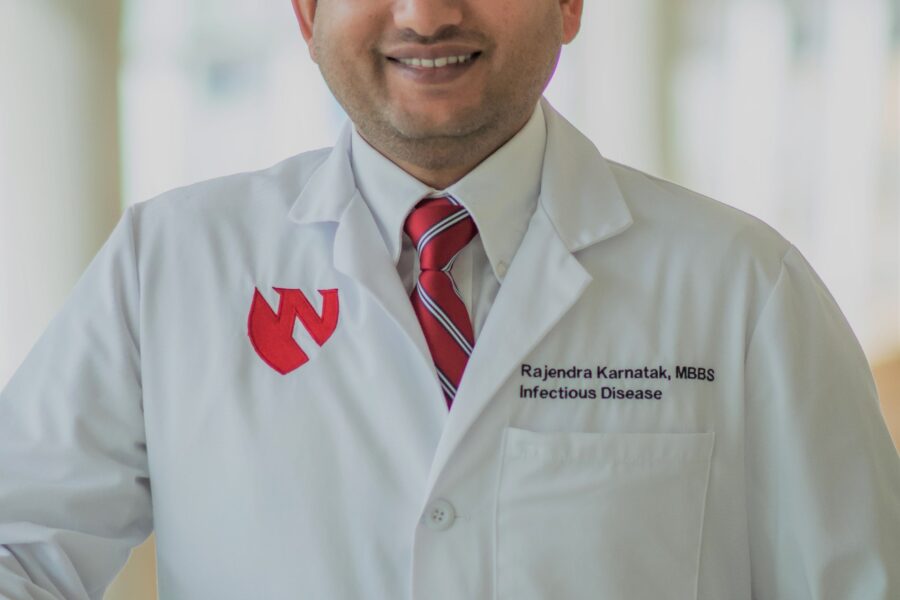Dr. Karnatak, who is finishing his 1st year of ID fellowship, shares what ID fellowship is like here at UNMC:
UNMC ID fellowship is uniquely designed to create an individualized training path for fellows. During my fellowship interview, I believed this fellowship would support fellows to achieve their personal career aspirations, and now after completing my first year of fellowship, I know this is true. The UNMC ID faculty are both the reason for this support and are also the best part of the fellowship! Everyone in the division is very approachable and ready to help in every feasible way. The faculty take pride in teaching the fellows.
The, first year of fellowship provides excellent experience in general ID and introductory rotations to solid organ transplant infections and oncology infectious disease. Overall, two years of ID fellowship at UNMC also provides 6+ months of research experience and at least 4-6 months experience of immunocompromised infections (solid organ transplant and oncology ID). When I started my fellowship, I had very little research experience. At UNMC I was able get the opportunity to work with national leaders in ID. Research training is very well designed to train fellows in writing research proposals, IRB applications and independently doing your research projects. During my first year, I was able to co-author a manuscript and submit an abstract for a national ID meeting. I am close to finishing my first research project, and I have already started discussing about more research projects I will be doing during my second year of fellowship.
The Multidisciplinary HIV ambulatory continuity clinic provides excellent exposure to HIV care, which is critical for gaining confidence in managing patients with HIV. I started my fellowship with very little experience in HIV management. At the HIV continuity clinic, once you demonstrate understanding of basic HIV knowledge, you will be exposed to more complex issues in HIV care such as HIV resistance, therapy switch challenges, drug-drug interactions and more. The bimonthly HIV round-table discussion is an excellent place to discuss challenges in HIV care with the experts.
Omaha is a city is known for its pioneer history and cultural centers. People are welcoming and you will feel the authentic Midwestern hospitality. No matter where you come from there is always something for everyone to enjoy here in Omaha. I lived in New York city during my residency and I was amazed see the cultural diversity in Omaha. It’s a perfect balance of amenities of big city with less hassle. In Omaha, people are nice and will greet you, even if they don’t know you.
Overall UNMC ID fellowship provides opportunity to build a career in multitude of areas including clinical infectious diseases, infection control, antibimicrobial stewardship, ID-critical care, Transplant infectious diseases, Oncology infectious diseases and biopreparedness training. If this kind of diverse exposure excites you, UNMC ID fellowship would be a good fit. Join us!!
